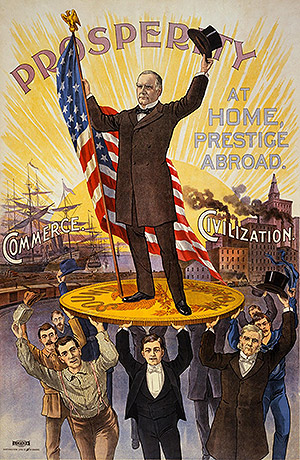Give your opinion
Not even the world's economic superpower could have seen this coming
A short reflection and update on current measures being taken by the US government in response to the outbreak of the global pandemic, Covid-19.

By Madeline LaSota (US)
2º Philosophy, Politics & Economics (PPE)
University of Navarra

Photo: Anna Shvets
(in Pexels (https://www.pexels.com/es-es/@shvetsa))
An astronomic number of people around the world are currently unable to leave their apartments or homes, patiently awaiting the day where this abrupt break from normal life will finally disperse. The entire world sits in the wake of this global pandemic, Covid-19, anxious to return to any trace of financial and social stability. Yet, returning to normalcy will not be quite that simple. This novel virus has likely undone decades worth of our social and economic habits, especially within the United States.
America is on the verge of another revolutionary shift. In the coming years, there will be astounding changes in economic, social and foreign policy in the aftereffects of the historical times we are in the midst of living through. The novel coronavirus has successfully stomped across the entire world, leaving families, businesses and national governments in a paralyzed state of shock. It feels as if we are living in an action movie: no one could have ever anticipated all of the fateful and rapid uncertainty that countries are facing; not even one of the world's most infamous economic and social superpower, the United States of America.
Any form of preexisting laws or rules within the US Constitution could never have adequately dealt with the immediacy and urgency of this situation. Politicians are ripping up the rulebooks and the Federal Reserve is pumping trillions of dollars into the money market to save private as well as public institutions such as banks, local governments, families, the education system, public health systems and even big corporations as well. Some speculate that this form of intervention will lead to a further insurgence of extreme government power in the years to come, swelling the government's overall role in the economy.
"The government intervention is not a government takeover," President Donald Trump argued. "Its purpose is not to weaken the free market. It is to preserve the free market." However, the preservation of the free capitalist market is one of the last things on people's minds at the moment. The most pressing national fear is the uncertainty of what will happen next. The rapid
momentum and force of this virus has dumbfounded even America's most equipped economists and politicians.
 The Federal Reserve (the central banking system of the US) and the US Congress (made up of the House and the Senate) are the front seat drivers that are steering the nation steadily through this titanic whirlwind. Their main objective as public government institutions is to maintain central control of monetary and fiscal policy in order to effectively alleviate great damages done from financial crises such as the Covid-19. In past historical events such as The Great Depression, World War II, the infamous bombings of the twin towers on September 11 and the Great Recession of 2008, these powers have expanded their roles and responsibilities in handling the traumatic aftermath of the respective crises.
The Federal Reserve (the central banking system of the US) and the US Congress (made up of the House and the Senate) are the front seat drivers that are steering the nation steadily through this titanic whirlwind. Their main objective as public government institutions is to maintain central control of monetary and fiscal policy in order to effectively alleviate great damages done from financial crises such as the Covid-19. In past historical events such as The Great Depression, World War II, the infamous bombings of the twin towers on September 11 and the Great Recession of 2008, these powers have expanded their roles and responsibilities in handling the traumatic aftermath of the respective crises.
At the forefront of the current economic situation, the Fed (The Federal Reserve) has taken actions that are essentially aimed at building a social safety net as people are falling and fearful of the future. They have pumped trillions of dollars into the economy to try to carry the weight of the colossal damage done from halting economic activity. An estimated total of $300 billion worth of cash payments have been sent to Americans; Another $260 billion has been sent for unemployment payments; $350 billion has been allocated for the Small Business Administration to offer loans to small businesses; There's $10 billion for emergency grants, $58 billion for airlines, $8.8 billion for child nutrition, and $450 million for food banks.
All in all, the Fed has demonstrated that the US government can generate huge amounts of state power when necessary. Lawmakers are considering sending another stimulus package after passing a record $2 trillion rescue package to help tide over businesses and households during the economic shutdown. However, some people are anxiously asking themselves; will all of this government spending be enough to actually make a significant difference in the lives of American citizens and businesses? Only time will tell.
On the frontlines in the hospitals, there is an urgent call for more supplies. A large percentage of doctors and medical assistants report lacking a sufficient amount of face masks and ventilators, making this crisis all the more stressful. However, there are many initiatives being taken across the country that are manifestations that the US will victoriously fight together through this crisis.
For example, In Chicago, parts of McCormick Place, the largest and most flexible convention center in North America, are being opened to accommodate patients with mild coronavirus symptoms to create more availability for patients who need more intensive care in the hospitals. In California, the largest state in the US, the governor has launched an initiative that will recruit thousands of retired medical professionals and students near graduation to serve as doctors, nurses and other medical workers in preparation for the expected surge in Covid-19 cases.
 On the private consumer level, according to the International Monetary FundThe United States has implemented a range of measures including travel restrictions, social distancing, declaration of states of emergency, closure of schools, bars and restaurants, and increased testing. Many states have laid out restrictions not just as strong suggestions, but as requirements that cafeteria people from participating in non-essential outside activity, threatening those who disobey with severe fines.
On the private consumer level, according to the International Monetary FundThe United States has implemented a range of measures including travel restrictions, social distancing, declaration of states of emergency, closure of schools, bars and restaurants, and increased testing. Many states have laid out restrictions not just as strong suggestions, but as requirements that cafeteria people from participating in non-essential outside activity, threatening those who disobey with severe fines.
The overarching power of this pandemic has forced this strong executive and state action to effectively reign in the continual the spread of the virus, propelling federal and local state governments to move faster and farther than ever before. However, as history has shown through events such as the Civil War, the two World Wars and the financial crisis that took place in 2008, the US has tended to return power to society once the emergency has passed.
Most likely, this crisis will leave the US and many other countries with a sense of regret for what could have been done better from the start. However, this regret will not be in vain: it can act as a catalyst for change to incentivize national and local governments to install effective prevention measures in the future. It can potentially lead to more human and purposeful leadership that works to keep customers and employees at the forefront of policy changes. It will be a time to re- assess private and public values, looking towards the future with eyes on the present. This crisis will be a time for citizens and governments to think both broadly and narrowly, a time to understand that this crisis is temporary and there will be a recovery period. We are all in this together.






